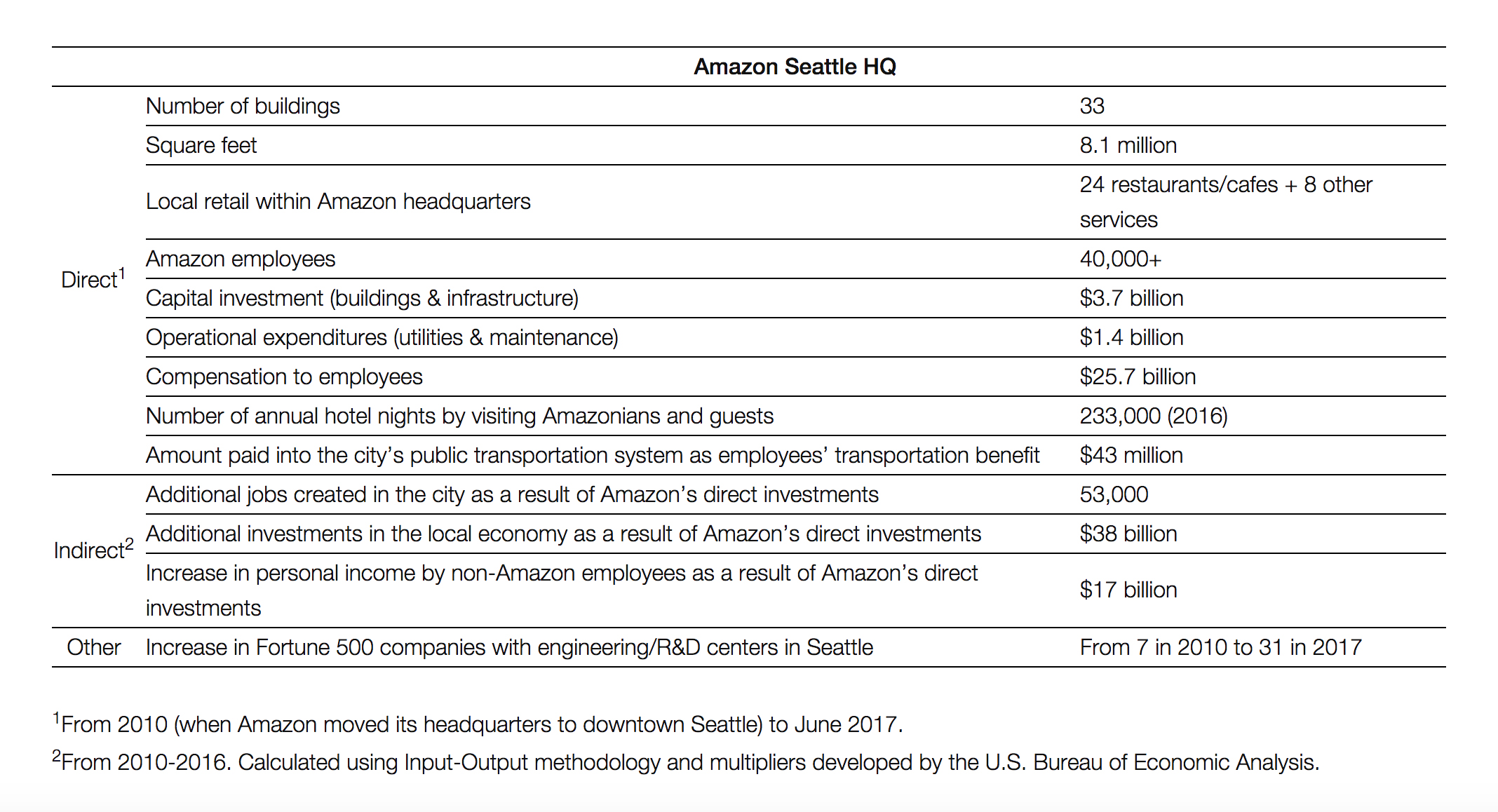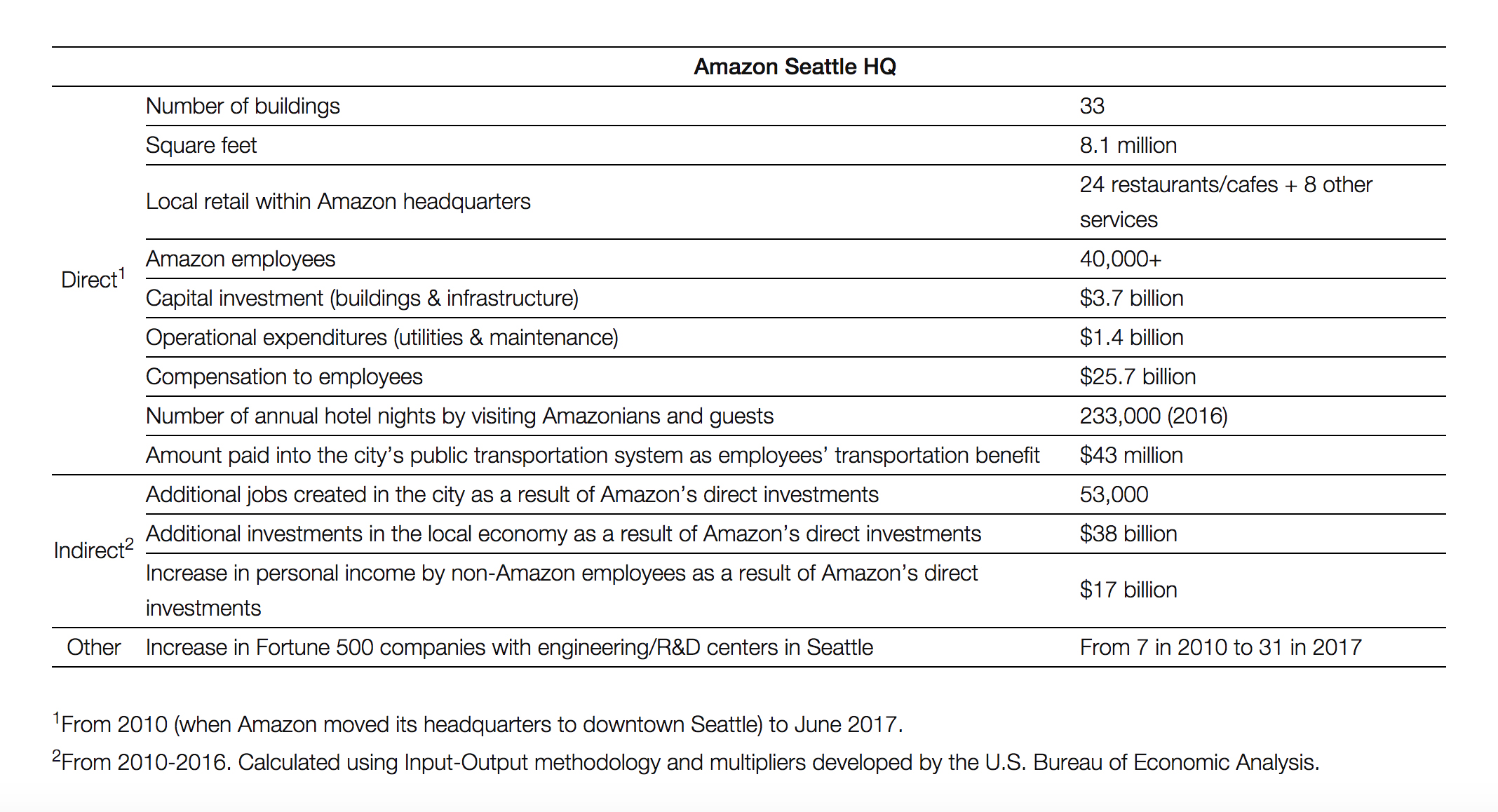Last month, Amazon launched a national sweepstakes tied to an announcement that it would be investing in a second headquarters (HQ2) in North America. The competition will be fierce, if the Seattle base is any indication of HQ2’s potential success. The winning city will be welcoming billions of dollars in direct investments to the local economy, billions to public transport and tens of thousands of jobs. Here’s a breakdown of Seattle’s success thus far:
While Seattle residents are wary of Amazon’s search for a second headquarters, they cannot deny that the popular online marketplace needs more space and resources to continue growing.
“They’ve outgrown Seattle. Amazon wants a 4-million-square-foot location and we don’t necessarily have that much land,” says Matthew Gardner, chief economist at Windermere Real Estate. “They’ve also tapped the talent pool in Seattle.”
While anyone is free to submit a proposal, Amazon has a strict set of guidelines by which they will be choosing their new location:
- A metropolitan area with more than 1 million people
- A stable and business-friendly environment
- An urban or suburban location with the potential to attract and retain strong technical talent
- A community that thinks big and creatively when considering locations and real estate options
How will this impact real estate?
The chosen city is expected to receive $5 billion in construction funds and as many as 50,000 high-paying jobs. This could be a boon to the real estate industry.
Looking at Seattle’s real estate market may be the best way to determine how HQ2 will impact the chosen city.
“We have been doing remarkably well as a central location,” says Gardner. “Downsides are a component of it. We obviously have a shortage of housing and it’s pushed prices higher.”
Allen Shayanfekr, founder and CEO of Sharestates—one of the largest real estate investment companies in the U.S. —believes Amazon’s investment will create a need for more residential, commercial and mixed-use properties. He also foresees an immediate focus on rentals.
“We can expect to see an increase in employees and other tech professionals looking to rent, which will cause a spike in real estate development suitable for renters,” says Shayanfekr.
Some brokers are more certain than others in their market’s ability to handle a large influx of buyer activity.
“We are a very walkable city and have plenty of desirable housing stock that could satisfy a diverse group of buyers,” says Valerie Post, license partner and private office advisor at Engel & Völkers Boston/Meridian Realty Group. “If gentrification repeats like it did in certain areas of Seattle, we will find areas like Roxbury coming back to their former glory.”
This massive undertaking won’t be without its challenges. The chosen city will need a strong labor force to tackle the large-scale construction and a housing market that can support relocating talent.
“Depending on where a buyer is looking in the area, we are already faced with low inventory market conditions. In addition, the downtown area of Boston is faced with affordability issues for moderate- and mid-income homeownership,” says Paul Mydelski, founder and chairman of RE/MAX Leading Edge.
An overextended market is one of …read more
From:: Finance and Economy


